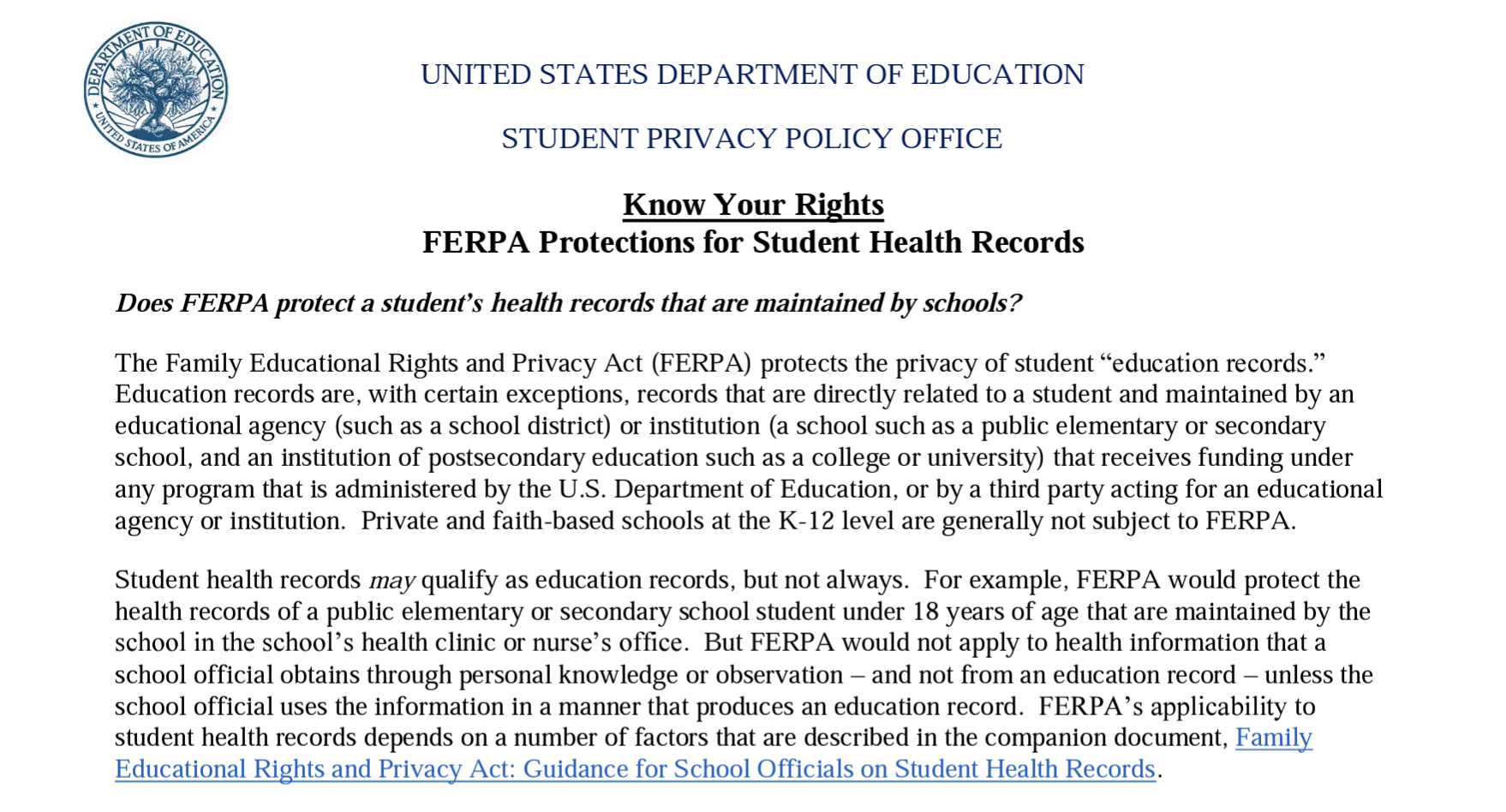This resource is provided by ACSA Partner4Purpose Lozano Smith.
Several California school districts are facing legal challenges brought by parents and teachers to district policies favoring student privacy with respect to gender expression and identity. Other school districts are adopting parental notification policies requiring district staff to notify a student’s parents when their child requests to use a different name or pronouns than those assigned at birth, or to access sex-segregated facilities and programs that do not align with the gender listed on the student’s birth certificate. The California Attorney General has sued at least one school district over its parental notification policy. These issues and cases highlight the tensions between student privacy and parental rights. Further, in light of the disagreement among courts thus far, school districts are currently left without clear legal guidance for addressing these issues.
Background
In 2013, the California Legislature passed Assembly Bill (AB) 1266, permitting students to use school facilities and participate in programs and activities consistent with their gender identity. Shortly after, the California Department of Education (CDE) published Frequently Asked Questions (FAQs) regarding AB 1266. FAQ Number 7 states:
[S]chools must consult with a transgender student to determine who can or will be informed of the student’s transgender status, if anyone, including the student’s family. With rare exceptions, schools are required to respect the limitations that a student places on the disclosure of their transgender status, including not sharing that information with the student’s parents.
Following the passage of AB 1266 and CDE’s publication of the FAQs, many school districts throughout California adopted policies consistent with FAQ Number 7.
Legal Challenges to Student Privacy Policies
Over the last year, parents and teachers have filed lawsuits against several California school districts challenging policies favoring student privacy over parental involvement.
Regino v. Staley
On July 10, 2023, a federal district court granted Chico Unified School District’s motion to dismiss a challenge to its Administrative Regulation (AR) 5145.3, which provided that staff may only disclose a student’s transgender or gender non-conforming status with the student’s consent. (Regino v. Staley (E.D. Cal. July 11, 2023) No. 2:23cv00032, 2023 WL 4464845 (Regino).) In this matter, the plaintiff parent, who dubbed AR 5145.3 the “Parental Secrecy Policy,” alleged that the district kept her child’s transgender status from her for approximately two weeks. The parent also alleged that the district had “socially transitioned” her child without parental consent by using the student’s preferred pronouns and name at school. The parent brought substantive due process, procedural due process, and First Amendment claims. The court dismissed each claim, finding that the parent failed to establish that she had a constitutionally protected liberty interest in receiving notice from the district of her child’s gender identity or in consenting to her child’s use of a certain name and pronouns at school. The parent has filed an appeal, and the case remains pending in the Ninth Circuit.
Konen v. Spreckels Union School District
In a similar case against another California school district, also brought in a federal district court, a parent plaintiff alleged that two teachers began an LGBTQ+ student group and held meetings during lunch without keeping records in order to conceal student involvement from their parents. (See Konen v. Spreckels Union School Dist. (N.D. Cal. 2022) No. 5:22cv05195, (Konen).) The parent also alleged that the teachers convinced her child to transition, to use male pronouns, and to keep the information from the parent. The district argued that the student voluntarily attended the lunchtime meetings, such meetings were held without record-keeping in the interest of student privacy, and the student expressed concern about disclosing their gender identity to their parent. As part of its defense, the district relied upon its compliance with the CDE FAQs. The district ultimately settled the case for $100,000 without admitting fault.
Mirabelli v. Olson
Two teachers sued Escondido Union School District regarding the district’s policy (which resembled the policies at issue in the Regino and Konen cases discussed above), alleging that the policy violated their rights to free speech and free exercise of religion. (See Mirabelli v. Olson (S.D. Cal. September 14, 2023) No. 3:23cv00768, 2023 WL 5976992) (Mirabelli).) As in Regino, the school district moved to dismiss the case. However, in Mirabelli, the federal district court denied the district’s motion to dismiss and granted the teachers’ motion for preliminary injunction, preventing the school district from enforcing the policy against them. Notably, in his order granting the injunction, Judge Roger Benitez found that the teachers established a likelihood of success on the merits of their case, on the basis that the policy requires the teachers to mislead parents by referring parents to administrators for information about their child’s gender identity even though such information will be “impossible for the parents to obtain” from the administration.
Parental Notification Policies and Response from the State Attorney General
While parents and teachers continue to litigate the lawfulness of policies favoring student privacy, several school boards in California have adopted or considered policies that explicitly require parental notification when a student expresses a gender identity at school inconsistent with their sex assigned at birth. Most notably, on July 20, 2023, after a heated public comment session and despite a written warning from the State Attorney General, Rob Bonta, the Chino Valley Unified School District (Chino Valley) adopted a policy requiring all district staff to report to parents as soon as they become aware that a student is presenting or identifying as a gender not aligned with the gender assigned to that student at birth. In response, the Attorney General informed Chino Valley that it should expect a civil rights investigation and a potential lawsuit.
The Attorney General’s Office followed through on its warning and filed a civil rights lawsuit against Chino Valley. (See People v. Chino Valley Unified School Dist., (Super. Ct. San Bernardino County, 2023, No. CIV SB 2317301.) On September 6, 2023, a San Bernardino Superior Court judge granted a temporary restraining order barring the school district from enforcing the parental notification policy pending further litigation. The judge found the Attorney General to have demonstrated a likelihood of success on the merits of its case, to the extent that Chino Valley’s policy “explicitly and textually discriminates” against transgender and gender-nonconforming persons, thus denying those students equal access to education. Nonetheless, several other California school districts have followed Chino Valley’s lead, adopting their own iterations of a parental notification policy.
Takeaways
In light of inconsistent court rulings regarding gender identity policies, school districts must prepare to address challenges to such policies, whether they favor student privacy or parental involvement. While awaiting clear, consistent legal precedent or guidance on this issue, school districts should review existing nondiscrimination and gender identity related policies and consult legal counsel as needed.
If you have any questions about policies related to parent rights, student privacy, and gender identity please contact an attorney at one of Lozano Smith’s eight offices located statewide.
































